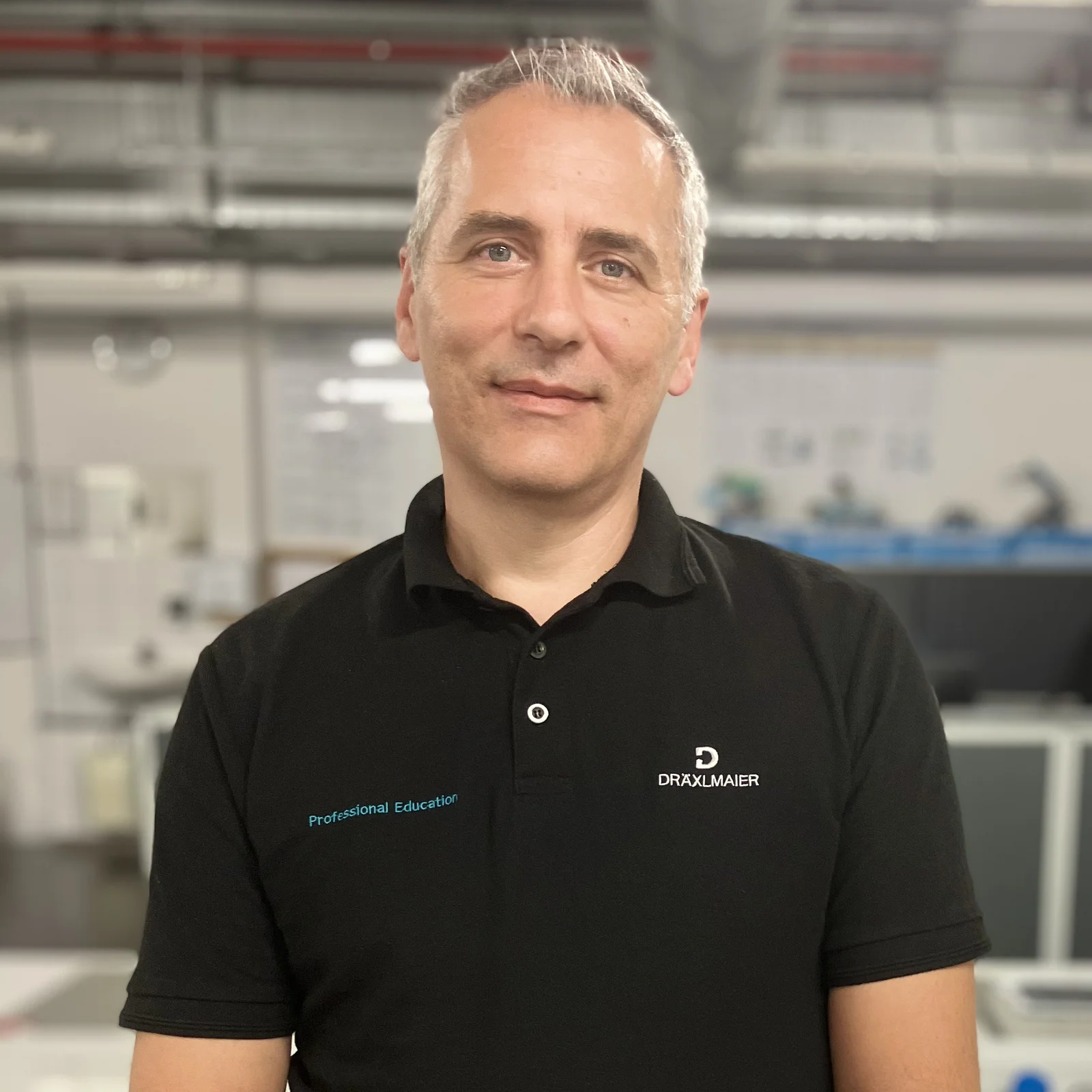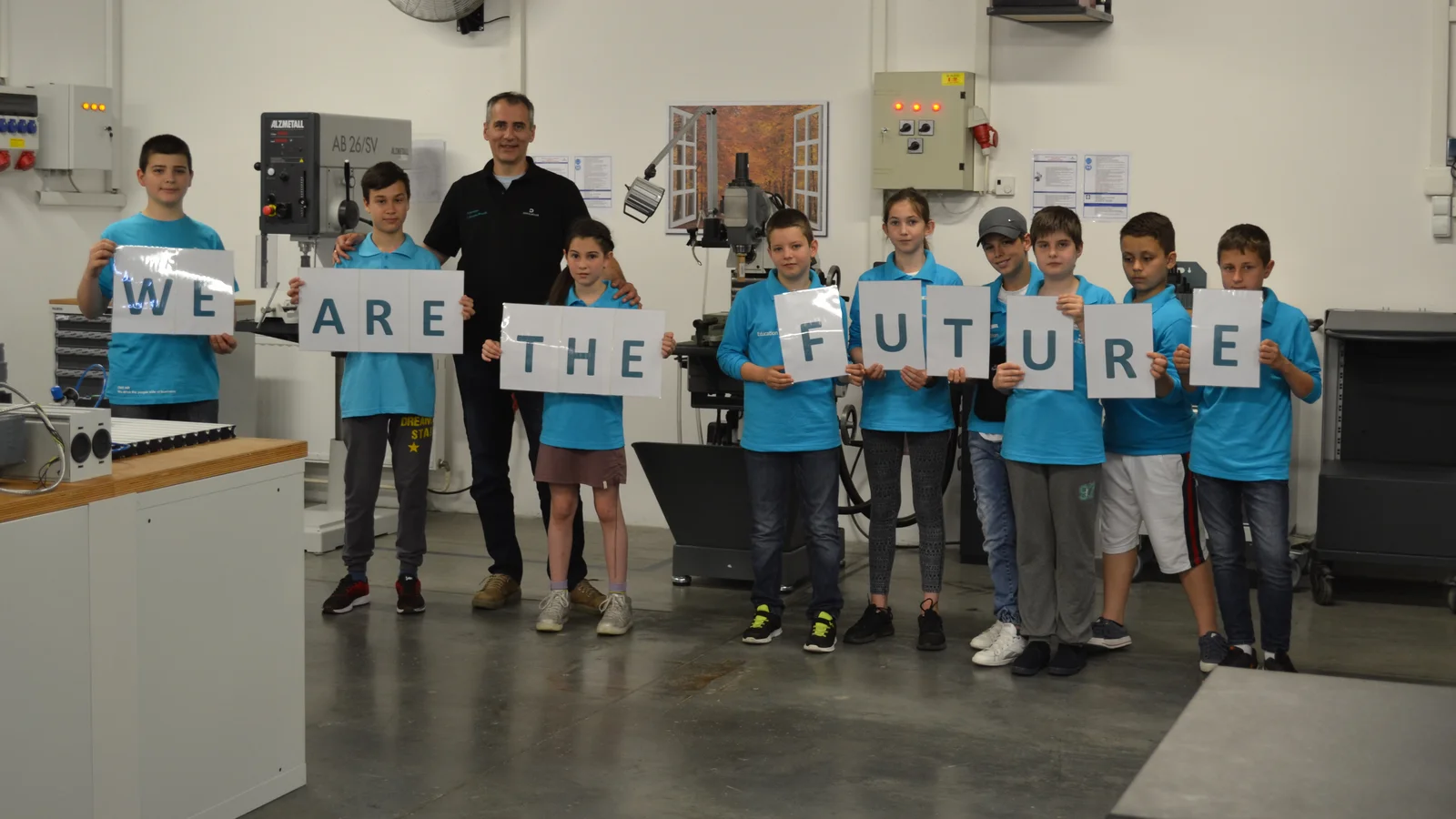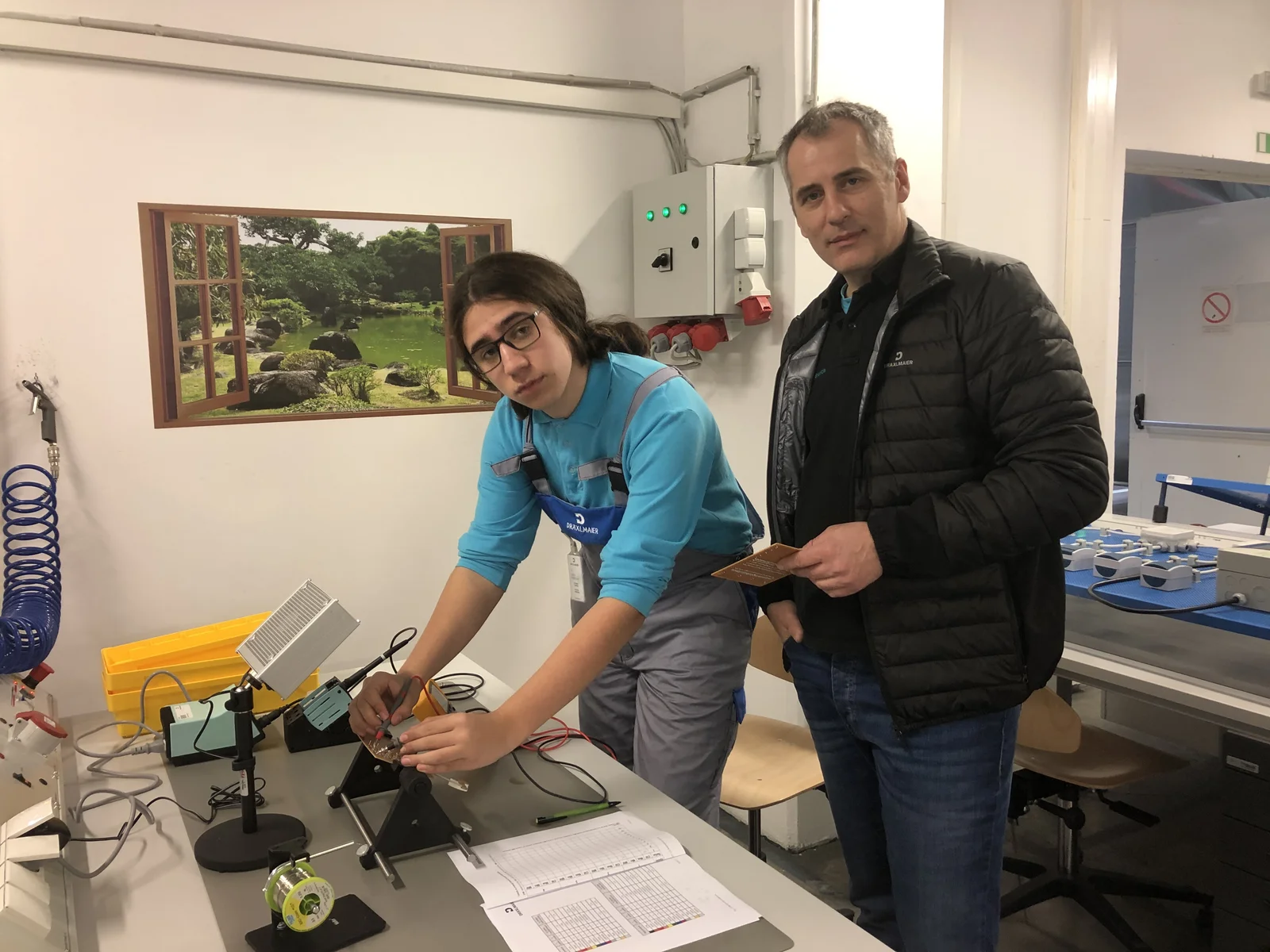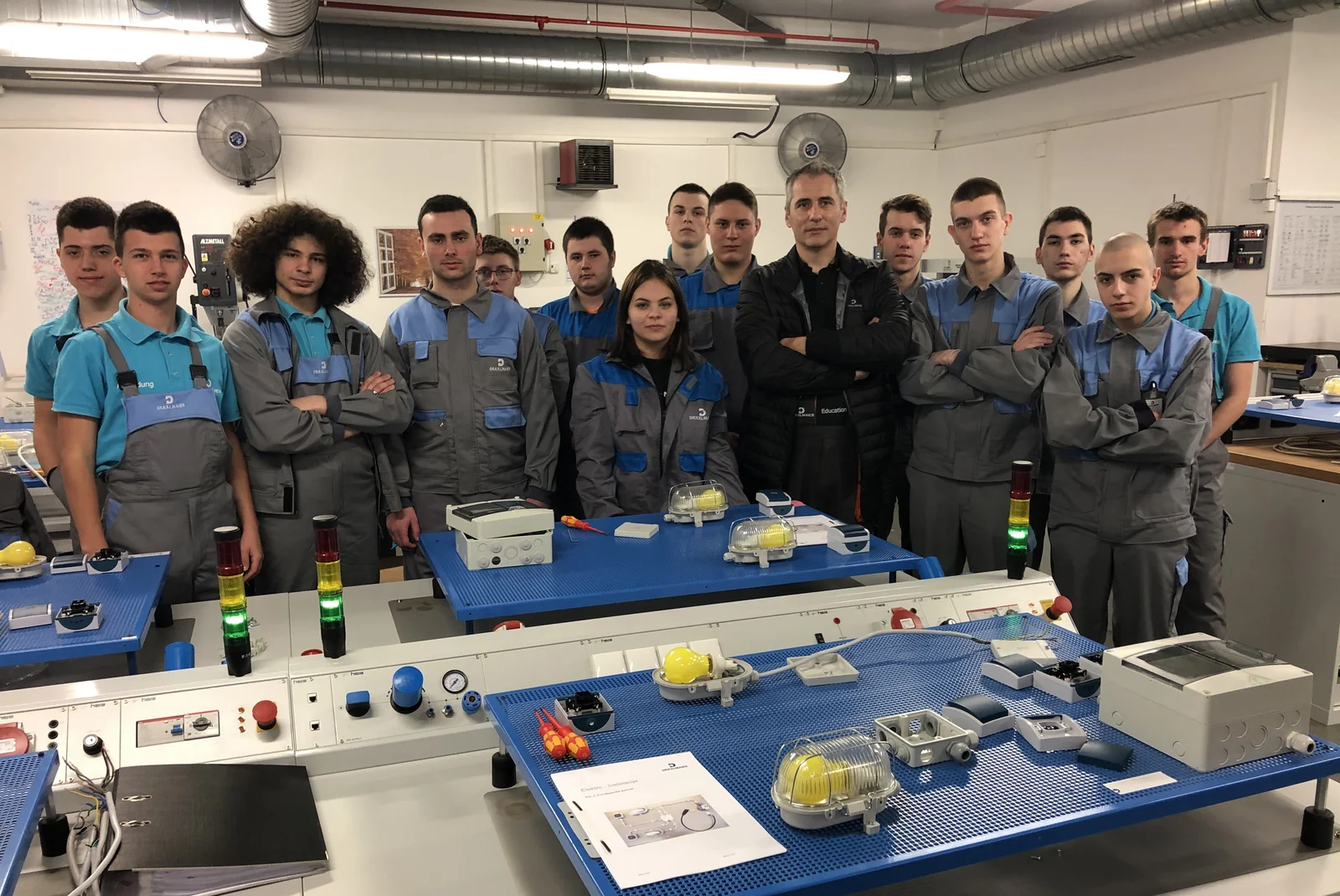
Knowledge as a key competence for professional success
Leonardo, Head of Professional Education in Zrenjanin, Serbia, has been working at DRÄXLMAIER since 2008
What career steps have you already taken at DRÄXLMAIER?
In 2008, I started as an electrician in the maintenance department at DRÄXLMAIER in Serbia. Shortly afterwards, I was offered a job as an electrician’s foreman.
Some time later, the dual education program started in our country, and since this coincided exactly with my master’s degree, I was offered a job as a trainer. At that time, I began my work with eight trainees. Since then, our department has developed steadily and grown considerably. As Head of Professional Education, I am proud that we are currently supervising a total of 70 young people starting their careers. My work presents me with new challenges and many demanding tasks every day, but that is precisely what gives me great joy.

What do you enjoy most about your job?
During my work at DRÄXLMAIER, I have acquired many pedagogically valuable skills that have greatly enriched me. Additionally, I have developed the didactic and methodological skills necessary for organizing practical learning in the workplace. I also enjoy working with our modern workshop equipment. However, the greatest joy and what I love most about my job is the opportunity to work with young people, my trainees. Working with them is very inspiring, interesting, always different, and full of smiles. I strive to be a role model for my trainees, helping them develop their rational, emotional, and spiritual intelligence.
It is essential for trainees to support inventiveness, innovation, and modernization, to be socially responsible, cooperative, and constructive, and to be ready to listen to others.
In your opinion, what makes dual education in Serbia special?
In the previous education system, young people were mainly taught formal knowledge. In the dual model, they also acquire functional knowledge because our trainees work under real conditions and in actual production processes. This quickly teaches trainees entrepreneurial thinking and behavior, project and process planning, and critical thinking. The Serbian Ministry of Education and Technological Development also plans to convert some universities to the dual system, which would benefit schools, companies, students, and trainees in Serbia.
The main focus of the training department in Zrenjanin is on the step-by-step development of new skills. Tasks are approached from simple to complex and from known to unknown. In line with the performance principle, trainees receive constructive feedback and the opportunity for individual practice. We place great importance on adapting the learning content and methods to the individual abilities of our trainees.

What was your best experience in the dual education program?
We celebrate many successes together with the trainees. Last year, one of our trainees won first place in a state-level mechatronics competition. Additionally, some of our students recently helped develop a technical innovation proposed by the education department in Zrenjanin. With the support of the patent department in Vilsbiburg, the product they helped developed was finally awarded a patent by the German Patent Office.
I see the greatest success in the project “When I grow up I will know what I will do,” which I coordinate. It aims to introduce technology and science to children between the ages of ten and twelve. The children get insight into our daily work on our company premises. This way, we want to spark their interest in modern technology at an early age."

What would you like to pass on to your trainees?
It is important to us to provide our trainees not only with practical skills, but also with important moral values, manners and social skills for their professional careers.
I always tell our trainees to believe in themselves, never give up, and always follow the path of true values: the path of knowledge, honesty, kindness, and decency. These are the basic prerequisites for our society to continuously improve.